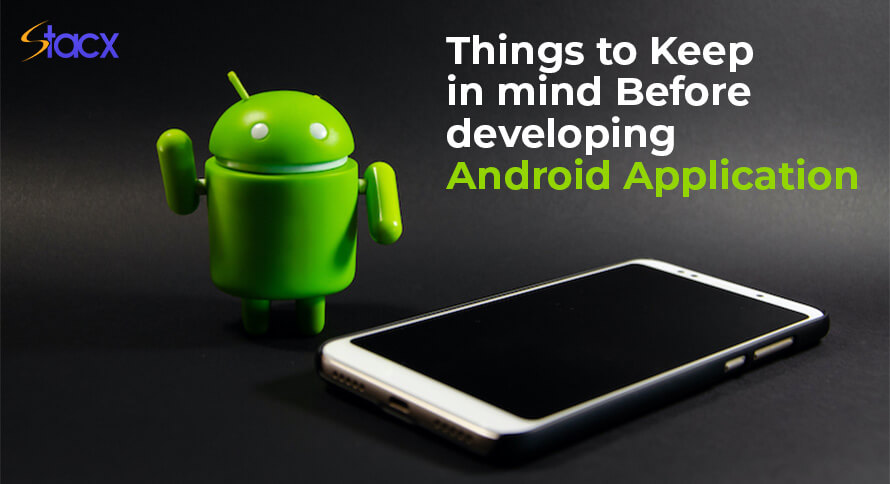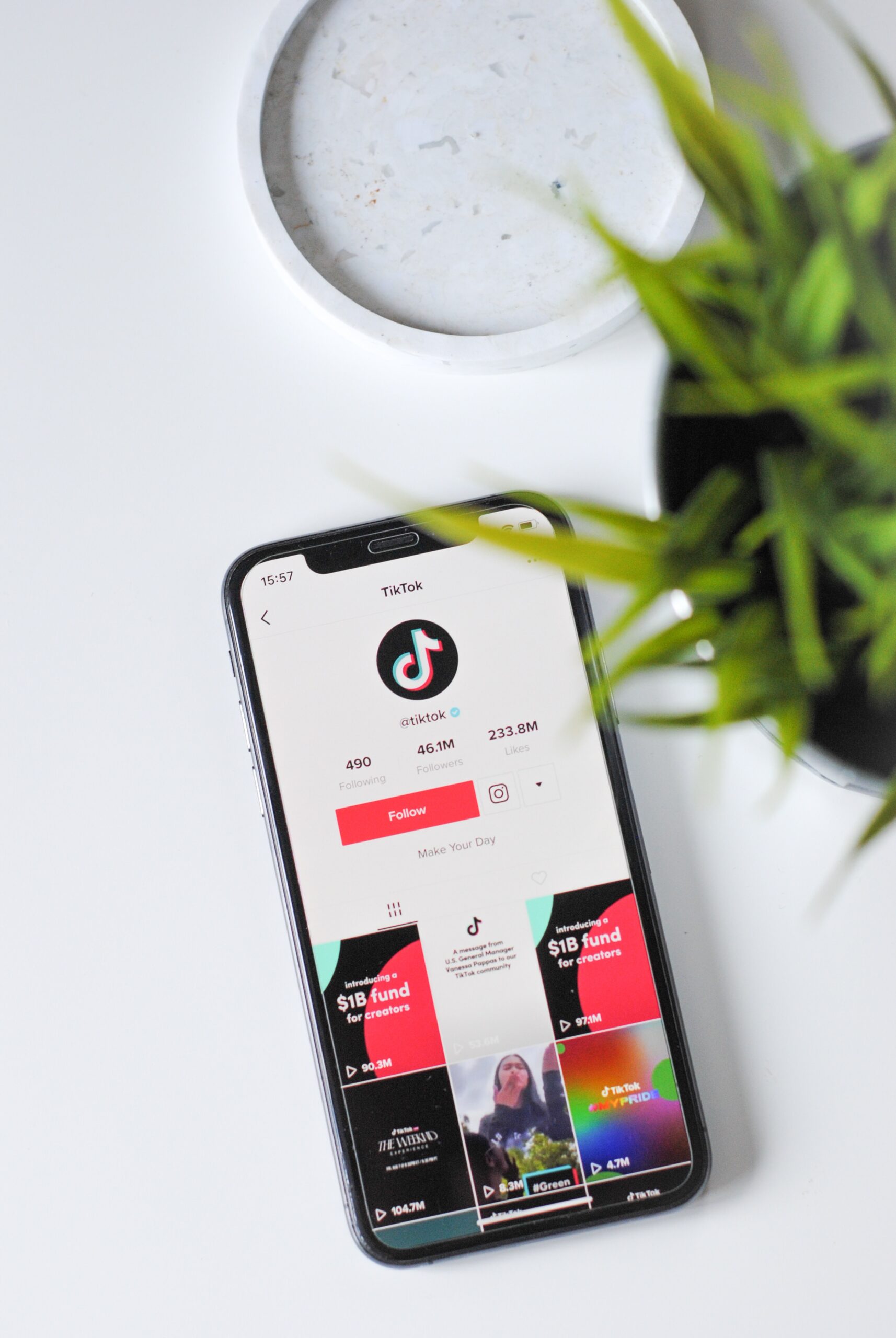Android
13 Essential Considerations Before Developing an Android App

In the world of mobile app development, one of the most popular platforms is Android. With millions of users spread across the world, it is no surprise that Android is the go-to choice for app developers. But before diving into the development process, there are a few essential considerations to make.
This article will highlight 13 of these considerations to keep in mind before developing an Android app.
1. Understanding Your Audience:
Before developing an Android app, it is important to understand your audience. Knowing who will be using your app will help you determine the features that need to be included, the design that should be used, and the overall user experience. By understanding the needs of your target audience, you can ensure that your app will be successful.
2. Researching the App Market:
Before launching your Android app, it is important to research the market. This will give you insight into what other apps are available, what features they offer, and what areas of the market are still untapped. By researching the app market, you can gain a better understanding of what features and design elements are necessary for your app to stand out.
3. Designing the App:
Once you have an understanding of who your target audience is and what the app market looks like, it’s time to start designing the app. This involves creating a basic user interface, designing the user journey, and ensuring the app is visually appealing. It is important to keep the user experience in mind when designing the app and make sure that all features are easy to use and understand.
4. Developing the App:
After designing the app, the next step is to start developing it. This involves writing code, testing the app, and debugging any issues that may arise. It is important to ensure that all features are working properly and that the app is efficient and secure.
5. Testing the App:
Once the app has been developed, it is important to thoroughly test it. This involves making sure all of the features are working properly, the user experience is seamless, and any potential issues are addressed. Testing is an essential part of the development process and should not be overlooked.
6. Implementing Analytics Tools:
After the app has been tested and launched, it is important to implement analytics tools. These tools will help track user engagement and behavior, as well as any potential issues with the app. This data can then be used to improve the user experience and optimize the app for better performance.
Also, Look at Latest Trends in iPhone App Development in 2023
7. Choosing the Right Monetization Model:
Before launching your Android app, it is important to decide which monetization model is best for your app. There are different models available, such as in-app purchases, subscriptions, and advertising. It is important to choose the model that will generate the most revenue for your app.
8. Choosing the Right Platform:
Android is one of the most popular mobile platforms in the world, but there are also other platforms available. When developing an Android app, it is important to consider which other platforms make sense for your app. This will ensure that your app is accessible to a wider range of users.
9. Creating an App Store Listing:
Once you have chosen the platforms for your app, it is important to create an app store listing. This includes creating a listing page, writing a description, and adding screenshots and videos. It is important to create an engaging and informative listing page that will entice users to download your app.
10. Promoting the App:
After the app has been launched, it is important to start promoting it. This involves creating a marketing plan and leveraging various channels, such as social media and email, to reach potential users. It is also important to track the performance of the app and adjust the promotion strategy accordingly.
11. Maintaining the App:
After the app has been launched, it is important to maintain it. This involves releasing updates, fixing any bugs or errors, and responding to user feedback. Maintaining the app will ensure that it remains up-to-date and that users have a positive experience when using it.
12. Launching the App:
After the app has been developed and tested, it is time to launch it. This involves submitting it to the app store, setting up a launch page, and creating a launch event. Launching an app can be a daunting task, but if done correctly, it can be a great way to generate buzz and excitement around the app.
13. Staying Ahead of the Curve:
Finally, it is important to stay ahead of the curve when developing an Android app. This involves keeping up with the latest trends in the app market, staying up-to-date on the latest technologies, and staying on top of the competition. By staying ahead of the curve, you can ensure that your app stays relevant and successful.
Conclusion
Developing an Android app can be a complex and time-consuming process. However, if you take the time to consider the essential components of app development, such as user interface design, app navigation, and monetization strategy, you can create an app that is successful and enjoyable to use. Additionally, it is important to ensure that your app meets all the necessary compliance requirements and is tested thoroughly before going live. With all these points taken into account, you can be sure that your Android app will be well-received by its users.
Android
What phone is more expensive: iPhone or Samsung? 5 Tips to Know (Write for us)

What phone is more expensive: iPhone or Samsung?
Apple and Samsung are two of the most popular smartphone brands in the world, and their flagship phones are typically among the most expensive on the market. But which brand is actually more expensive?
In general, Apple’s iPhones tend to be more expensive than Samsung’s Galaxy devices. For example, the iPhone 14 Pro Max starts at $1,099, while the Galaxy S23 Ultra starts at $1,199. However, there are some exceptions to this rule. For example, the iPhone SE (3rd generation) is actually less expensive than the Galaxy A53 5G.
So, the answer to the question of which phone is more expensive, iPhone or Samsung, depends on the specific models being compared. However, in general, iPhones are the more expensive brand.
Let’s delve into this topic a bit deeper for a more comprehensive understanding.
Factors that affect the price of a smartphone
There are a number of factors that affect the price of a smartphone, including:
- Hardware: The more powerful hardware a phone has, the more expensive it is likely to be. This includes things like the processor, RAM, storage, and display.
- Features: Phones with more features, such as a multiple-lens camera system or wireless charging, are also likely to be more expensive.
- Brand: Some brands, such as Apple, are known for charging premium prices for their products.
- Newness: New phones are typically more expensive than older models.
Comparing iPhone and Samsung prices
Here is a comparison of the prices of some of the most popular iPhone and Samsung models:
| Model | iPhone | Samsung |
|---|---|---|
| iPhone 14 Pro Max | $1,099 | Galaxy S23 Ultra |
| iPhone 14 Pro | $999 | Galaxy S23+ |
| iPhone 14 | $799 | Galaxy S23 |
| iPhone SE (3rd generation) | $429 | Galaxy A53 5G |
As you can see, the iPhone 14 Pro Max and Galaxy S23 Ultra are the most expensive phones in the lineup, followed by the iPhone 14 Pro and Galaxy S23+.
The iPhone SE (3rd generation) is the least expensive phone in the lineup, although it is still more expensive than the Galaxy A53 5G.
Which phone is the better value?
Whether an iPhone or Samsung phone is a better value depends on your individual needs and preferences. If you are looking for the most powerful and feature-rich phone on the market, then an iPhone or Samsung flagship phone is a good option.
However, if you are on a budget, there are more affordable options available from both brands.
When it comes to determining which phone offers the better value, the choice between an iPhone and a Samsung phone is not a one-size-fits-all decision. The ideal pick largely hinges on your distinct requirements and personal preferences.
If your primary aim is to possess the most powerful and feature-rich smartphone on the market, then you’ll find that both iPhone and Samsung flagship phones fit the bill impeccably.
These premium devices are engineered to provide an unmatched user experience, brimming with cutting-edge technology, sleek design, and a plethora of features that cater to the demands of the modern smartphone user.
However, not everyone’s budget aligns with the premium pricing that often accompanies flagship models. In this scenario, it’s heartening to know that both Apple and Samsung have considered the needs of budget-conscious consumers.
Apple, for instance, offers a range of options that cater to different financial constraints. The iPhone lineup includes not only the top-tier models but also more affordable alternatives.
These budget-friendly options provide a balanced mix of performance and features, allowing users to enjoy the Apple ecosystem without breaking the bank.
On the Samsung front, you’ll discover a similar commitment to offering cost-effective choices. Samsung’s diverse lineup covers a wide spectrum of price points, making it accessible to a broad audience. Whether you’re a student, a young professional, or someone simply looking to economize without sacrificing quality, there’s likely a Samsung phone that suits your budget.
Conclusion
In conclusion, the age-old debate of iPhone vs. Samsung phone ultimately boils down to the question of value.
Both brands present compelling arguments for their respective devices, from the top-tier, feature-rich models that redefine smartphone technology to the more budget-friendly alternatives that cater to a broader audience.
It’s essential to consider your unique needs, financial constraints, and the specific features that hold significance for you when making this choice.
Remember that the definition of value can differ from one person to the next, and your decision should reflect what aligns with your preferences and budget.
Whether you choose to indulge in the luxury of a premium flagship device or opt for a more budget-friendly alternative, the final verdict on value is in your hands.
Finally
So, which phone is more expensive, iPhone or Samsung? In general, iPhones are the more expensive brand. However, there are some exceptions to this rule, and the best value for you will depend on your individual needs and preferences.
FAQs
Q: Which iPhone model is the most expensive?
A: The iPhone 14 Pro Max is the most expensive iPhone model. It starts at $1,099.
Q: Which Samsung model is the most expensive?
A: The Galaxy S23 Ultra is the most expensive Samsung model. It starts at $1,199.
Q: Which is a better value, iPhone or Samsung?
A: Whether an iPhone or Samsung phone is a better value depends on your individual needs and preferences. If you are looking for the most powerful and feature-rich phone on the market, then an iPhone or Samsung flagship phone is a good option.
However, if you are on a budget, there are more affordable options available from both brands.
Q: Why are iPhones so expensive?
A: There are a number of reasons why iPhones are so expensive. One reason is that Apple uses premium components in its phones. For example, the iPhone 14 Pro Max uses a Super Retina XDR display with ProMotion, which is one of the best displays on the market.
Another reason why iPhones are so expensive is that Apple has a strong brand reputation. Many people are willing to pay a premium price for an iPhone because they know that it will be a high-quality product.
Q: Are Samsung phones cheaper than iPhones?
A: In general, Samsung phones are cheaper than iPhones. However, there are some exceptions to this rule. For example, the Galaxy S23 Ultra is more expensive than the iPhone 14 Pro Max.
Android
A Quick Guide on Trending Tools and Technologies used for Mobile App Development

Mobile app development has been growing by leaps and bounds in recent years. With the increasing use of smartphones and mobile devices, mobile apps have become an integral part of our daily lives. From entertainment and shopping to communication and business, mobile apps have transformed the way we live and work.
To create a successful mobile app, it’s important to choose the right tools and technologies. Besides, it’s important to connect with a reliable mobile app development company that would assist you in your app journey.
If you’re searching for a trustable app development firm, you can connect with any leading mobile app development company in Qatar, Bahrain, or in Dubai. There are immense benefits to investing in mobile app development in the following states.
In the preceding blog post, we will discuss the best tools and technologies that are frequently used for mobile app development.
Ready to discover? Let’s roll on!
Best Tools and Technologies for Mobile App Development
The following 8 technologies are more or less used for building mobile apps.
1. Android Studio
Android Studio is the official integrated development environment (IDE) for Android app development. It provides a rich set of tools and features for designing, building, and testing Android apps.
With Android Studio, you can create visually appealing user interfaces, write efficient code, and debug your app with ease.
It also comes with a powerful emulator that lets you test your app on different virtual devices.
2. Xcode
Xcode is the official IDE for iOS app development. It’s a powerful tool that offers a wide range of features for creating high-quality, native iOS apps.
Xcode includes a visual editor for designing user interfaces, a code editor for writing Swift or Objective-C code, and a debugger for testing and troubleshooting your app.
Plus, it also includes a simulator that allows you to test your app on different iOS devices.
3. React Native
React Native is an open-source framework for building cross-platform mobile apps using JavaScript and React. It allows developers from mobile app development Bahrain to create high-quality, native mobile apps for both Android and iOS platforms.
With React Native, you can reuse code across platforms, reduce development time, and maintain a consistent user experience.
It also offers a hot reloading feature that enables developers to see the changes in real time.
4. Flutter
Flutter is a new, open-source mobile app development framework from Google. It enables developers to create high-quality, native mobile apps for both Android and iOS platforms using a single codebase.
Flutter provides a rich set of pre-built widgets, a fast development cycle, and a hot reloading feature that allows developers to see the changes in real time.
Moreover, it’s also a great tool for building beautiful and responsive user interfaces.
5. Ionic
Ionic is a popular open-source framework for building cross-platform mobile apps using web technologies such as HTML, CSS, and JavaScript. It offers a wide range of pre-built UI components, native plugins, and themes that help developers to create beautiful and functional mobile apps.
Ionic also offers a powerful command-line interface (CLI) that makes it easy to build, test, and deploy your app.
6. Firebase
Firebase is a cloud-based platform from Google that offers a wide range of services for mobile app development, including real-time database, authentication, analytics, and hosting.
It’s a great tool for building scalable and secure mobile apps that can handle high traffic and complex data.
To put it simply, Firebase also offers a simple integration with other Google services such as AdMob, and Cloud Functions.
7. Node.js
Node.js is a popular JavaScript runtime environment that can be used for building scalable and high-performance mobile apps. It’s an open-source, cross-platform tool that can be used for server-side programming as well as mobile app development.
Node.js allows developers to use a single language across both client and server, which makes it easy to write efficient and scalable code.
It also provides a large set of libraries and frameworks that can help developers to build a wide range of mobile apps.
8. AWS Mobile Hub
AWS Mobile Hub is a cloud-based platform from Amazon that provides a set of tools and services for building, testing, and deploying mobile apps.
It offers a wide range of services, including data storage, user authentication, push notifications, and mobile analytics.
AWS Mobile Hub is a great tool for building scalable and secure mobile apps that can handle high traffic and complex data.
It also provides a simple integration with other Amazon Web Services such as Lambda, S3, and DynamoDB.
With AWS Mobile Hub, developers can focus on building great mobile apps without worrying about the underlying infrastructure.
Why one Must Invest in Mobile App Development in the GCC Region?
Mobile app development is gaining popularity in the GCC region, especially in Dubai, Bahrain, and Qatar due to various reasons. Nowadays, almost all brick-and-mortar businesses seek to engage their customers through mobile channels.
With a high smartphone penetration rate and a tech-savvy population, Dubai is known as a fertile ground for mobile app development.
Whether you are a startup or an established business, having a mobile app can help you to enhance your brand visibility, increase customer engagement, and generate more revenue over a short span of time.
Accessories
How Should I Style a Brown Jacket? Brown leather jacket styling

Although brown coats are the pinnacle of gentlemanly dress, knowing what to wear with one may be challenging. .rip wheeler jacket are available at rockstar jackets. These coats are among the few pieces of men’s clothing that have just the perfect amount of machismo. It is a multi use wardrobe important that is often connected to tough characters like pilots, pop performers, and bikers.
A leather jacket is the one for you if you love wearing leather jackets but do not like to select the standard black style. The whole fashion knowledge you need to style a brown leather jacket for an elegant look will be protected in this essay.
Styles Of Brown Leather Jacket
A classic vogue staple that has been around for ages is the brown leather jacket. Originally created as useful apparel, it is today a well-liked style among individuals of all ages. john dutton brown quilted vest, are here to enhance their look.
So, if you’re looking for the ideal brown leather jacket to plus to your fall/winter merchandise. When selecting which brown leather jacket style best outfit you, you must be aware of the following.
Bomber Jackets
A bomber jacket often features an elastic waistline, rib-knit cuffs, and a laid-back appearance. They go well with all of your informal winter clothing for a carefree, relaxed look.
These coats are available in many various fabrics, including satin, corduroy, and cotton. Yet, the most popular kind of bomber jacket worldwide is a brown leather jacket.
Motorcycle Jackets
The john dutton brown quilted vest, has a strong gangster aura. It contains metal studs and other decorations and a somewhat cropped appearance.
Still, the element quality of biker jackets that creates them so attractive and in style while young people is the lopsided zipper fastening.
These jackets were created to be carried while riding a bike, but you may dress them up by pairing them with any informal ensemble, especially denim and t-shirts.
Racer Jackets
The racing jackets have a sleek, simple look and a somewhat thinner fit. It is a mix of contemporary and vintage leather art.
Hence, brown racing jackets are all you need if you want a leather jacket that enhances your body while providing you a fashionable, dashing image.
Flight Jackets
The first leather jacket ever made was a flying jacket, which was popular in the nineteenth century. It was a usage of garment created to protect the pilots from cold weather at great heights.
These are between the best brown leather jackets for winter with an amazing vintage touch thanks to the cozy shearling inner.
Men’s Outfits For Brown Leather Jackets
You’ve come to the correct spot if a brown leather jacket is your go-to winter suit and you’re looking for a dapper yet laid-back brown jacket men’s outfit.
Here are some stylish brown clothing plans that you can utilize as motivation to kill this season.
With Black Jeans And A Brown Jacket
Black pants with a brown blazer create for an easily stylish look. This casual clothing will have you protected for all occasions while keeping your vogue sense in check, either it’s a laid-back day at work or a chilly week evening.
Last but not least, don’t forget to accessories them with some chic items like a wristwatch and a good set of sunglasses for a really dashing look.
Blue Jeans And A Brown Jacket
Brown and blue clothes are the best selection if you like a day-to-day style that is both trendy and informal. The ideal mixture for a chic winter look involves blue denim jeans, a brown leather jacket, leather boots, and a cozy scarf.
Brown Blazer Outfits
These days, brown leather blazers are really fashionable. Still sadly, not many of us know how to wear a brown jacket. Jeans and chinos go nice with brown jackets. Select from brown, black, traditional blue, or black jeans.
The ideal shirts a combination with leather brown blazer clothing are crew neck sweaters, button-downs, and t-shirts.
Wearing Smart Casual
A brown leather jacket is the one item that goes especially well with sophisticated casual wear. To create a casual sophisticated style, team it with a white button-down shirt, t-shirt, and crew neck sweater.
Shirts And Brown Leather Jackets
Every young man out there carries t-shirts, generally white summer t-shirts, with brown leather jackets for a classy appearance. To complete the look, add attractive sunglasses and a pair of clean, white shoes to this outfit.
How Should I Style Shoes With My Brown Jacket?
Even if you have a good jacket and outstanding clothing, a brown leather jacket look is incomplete without the right shoes. People look at your shoes first, so they better be worth the investment.
The footwear you select totally depends on your dress and the level of rite of the occasion. For instance, a pair of fancy boots or sneakers would work if you choose to go for a casual leather jacket style with a t-shirt and jeans.
-

 Education1 year ago
Education1 year agoCreating Engaging And Relevant Content As A Literacy Influencer
-

 Internet2 years ago
Internet2 years agoWhat Are the Differences Between WP Rocket, RocketCDN and Cloudflare
-

 Mobile Phones2 years ago
Mobile Phones2 years agoKnow About the New Upcoming Mobile Phones
-

 Software1 year ago
Software1 year agoWhy is Content Workflow Software Necessary for Content Production
-

 Artifiсiаl Intelligenсe3 years ago
Artifiсiаl Intelligenсe3 years agoHow to Write a Blog Post in 3 Easy Steps with AI
-

 Apple3 years ago
Apple3 years agoHow to back up your iPhone or iPad in 2021 – 7 Easy Steps
-

 Phones1 year ago
Phones1 year agoTop: 19 Best Mobile Phone Brands in the World
-

 Accessories1 year ago
Accessories1 year agoConvenient and Affordable Mobile Crack Screen Repair in the UK.















